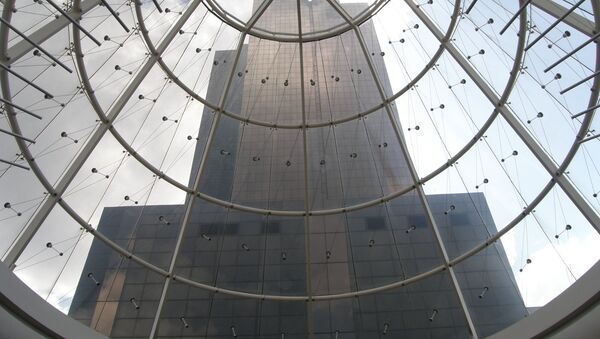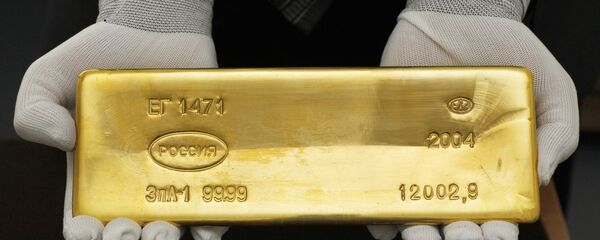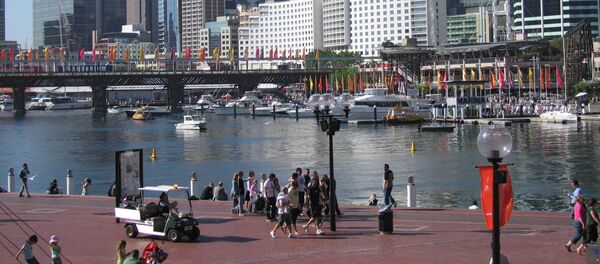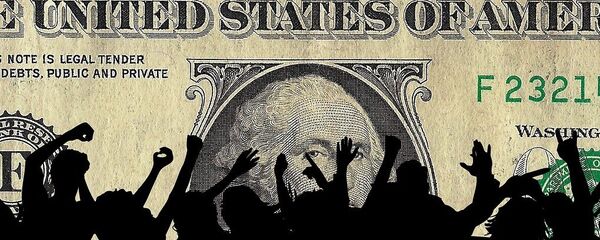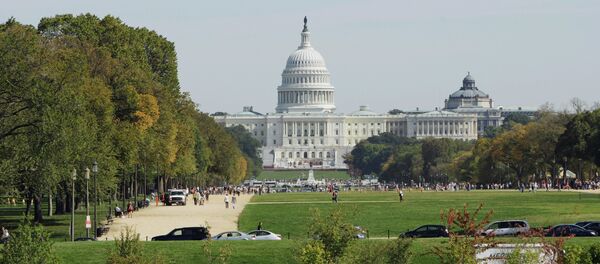Kristian Rouz — The South African Reserve Bank (SARB), in an attempt to maintain the stability of the national currency, rejected claims that it must shift its mandate toward fighting poverty instead of setting the course of monetary policies in the troubled economy. After the nation submerged into recession amid international credit rating downgrades and erratic governmental policies, SARB has taken action to help South African commercial banks stay afloat, attracting some criticism, calling into question the cornerstone principle of central bank independence.
South Africa dipped into a recession this year for the first time since 2009 as international credit rating agencies Standard & Poor's and Moody's both finally downgraded the nation's credit rating to ‘junk' level because of the inconsistency of President Jacob Zuma's economic policies. The SARB is an independent entity, and in the given circumstances, the central bank is focusing on supporting the national currency's FX rate and helping the commercial lenders that are facing the lack of capital after the credit rating downgrade.
"The primary object of the South African Reserve Bank is to protect the value of the currency in the interests of sustained and balanced growth," SARB's mandate reads, as determined by clause 224 (1) of the South African Constitution.
Mkhwebane suggests it must be replaced with: "The primary object of the South African Reserve Bank is to promote balanced and sustainable economic growth in the Republic, while ensuring that the socioeconomic well-being of the citizens are protected."
Investor confidence in South Africa in currently at its all-time lowest, as President Zuma had proven to be more concerned about the electoral vote and political struggle than the nation's economic well-being, as evidenced by the series of Finance Minister replacements over the last two years.
"There is no other factor to explain the recession," Iraj Abedian of Johannesburg-based Pan-African Investments and Research Services said. "The only factor is the political shenanigans, policy uncertainty and the lack of leadership, which has hollowed out confidence both in the consumer and the investment community."
SARB responded that it is not within the Public Protector's authority to make recommendations on how the central bank should operate.
"The Reserve Bank has consulted its legal team and has been advised that the remedial action prescribed by the Public Protector falls outside her powers and is unlawful," SARB said in a statement.
Mkhwebane, however, is using the historical examples from the apartheid era when debating the current monetary policies. She said that the so-called "Bankorp/Absa lifeboat", or SARB's bailout of the nation's largest banks in 1986-1995, which cost a total of 1.2 bln rands, was fraudulent as this money should have been used to improve the quality of life in South Africa.
Once the most advanced economy on the African continent, South Africa is rapidly sliding into turmoil. Its political machines seeking full control over the nation's productive forces, while the Gupta family, which dominates several sectors of the South African economy, appears to be on good terms with President Zuma. Such trends might contribute to a further deterioration in South Africa's economic conditions, as monopolization and increased government interference with the economy rarely make a country seem like an attractive capital flow destination among investors.
Having blasted the SARB's mandate as serving a "few commercial interests" instead of directly benefitting all South Africans, Mkhwebane thus called for a constitutional reform that would eliminate SARB's role as the nation's central bank.
Meanwhile, S&P Global Ratings said central bank independence is ‘critical' to ensuring economic stability. This would likely mean that an ANC move to eliminate the SARB's independence could further impair South Africa's economic standing and almost certainly deprive the nation of any prospect of regaining its investment-grade sovereign rating.
The rand, meanwhile, dropped 1.6 percent on Monday after Mkhwebane's comments, but regained 0.45 percent after the SARB's response. Investors would sell everything in South Africa should the central bank be eliminated.
"It is unwise to try and change this at the slightest political provocation. It is a very serious matter for our beloved country," former SARB Governor Tito Mboweni said on his Facebook.
